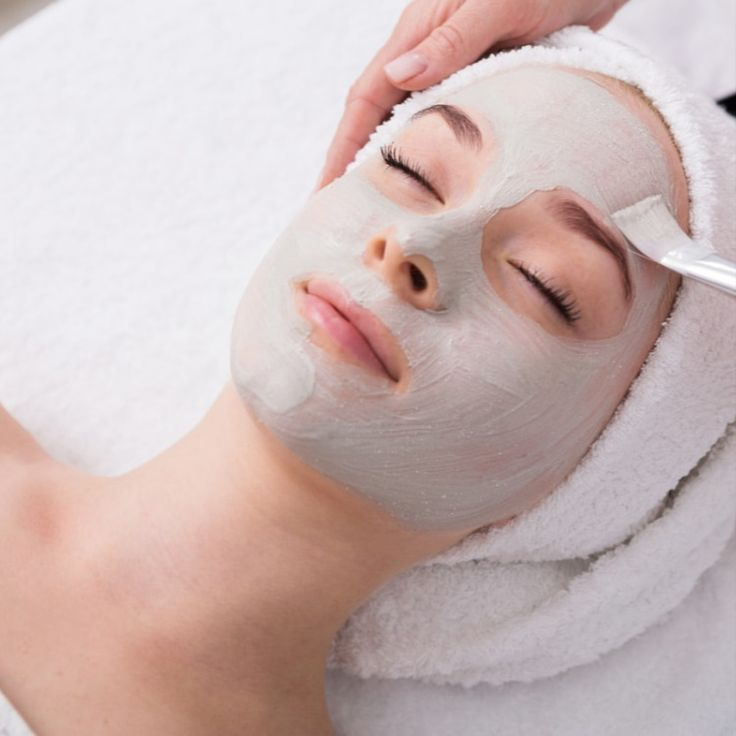3 Steps to Preparing Your Skin for a Chemical Peel
- Dynamic Clinic
- Sep 23, 2024
- 4 min read
A chemical peel can be a transformative treatment, offering a way to achieve clearer, smoother, and more radiant skin. However, for the best results, proper preparation is essential. Preparing your skin effectively not only enhances the outcome of the peel but also minimizes potential side effects. The keyword "3 Steps to Preparing Your Skin for a Chemical Peels in Dubai" underscores the importance of following a systematic approach to ensure your skin is ready for this rejuvenating procedure. Here are the three essential steps you should take.
Step 1: Consult with a Professional
Before undergoing a chemical peel, the first and most critical step is to consult with a qualified dermatologist or skincare professional. This initial consultation serves multiple purposes: it allows for an assessment of your skin type, identifies any specific concerns, and helps determine which type of chemical peel is best suited for you.
During this consultation, your skincare expert will evaluate your skin condition and discuss your skincare history. This includes any previous treatments, sensitivities, or reactions you may have experienced. It's important to be open about any medications you are taking, especially those that may affect your skin, such as retinoids or acne treatments. The professional will guide you through the various types of peels available—superficial, medium, or deep—and recommend the best option based on your individual needs.
Additionally, the expert will provide insights into what you can expect during and after the treatment. This transparency will help you set realistic expectations and prepare mentally for the procedure.
Step 2: Adjust Your Skincare Routine
Once you’ve consulted with a professional and chosen your chemical peel, the next step is to adjust your skincare routine in the weeks leading up to the treatment. The goal is to prepare your skin for the chemical solution, allowing it to be more receptive and less reactive.
Discontinue Certain Products
For at least one to two weeks before your chemical peel, you should avoid using products that contain active ingredients that can sensitize the skin. These include retinoids, alpha hydroxy acids (AHAs), and beta hydroxy acids (BHAs). While these ingredients are excellent for maintaining healthy skin, they can make your skin more vulnerable to irritation when undergoing a chemical peel.
Additionally, avoid using exfoliating scrubs or abrasive cleansers, as they can disrupt the skin barrier. Instead, opt for a gentle cleanser that won’t strip your skin of its natural oils.
Incorporate Hydrating Ingredients
During this preparation period, focus on hydrating and nourishing your skin. Incorporate ingredients such as hyaluronic acid, ceramides, and soothing botanicals. These components will help strengthen the skin barrier and keep your skin hydrated, reducing the risk of dryness or irritation post-peel.
Consider using a gentle moisturizer to keep your skin supple. Keeping your skin well-hydrated will create an optimal environment for the chemical peel, allowing it to work effectively without compromising your skin's health.
Use Sunscreen Daily
Sun protection is crucial when preparing for a chemical peel. Exposure to UV rays can damage your skin and increase the risk of complications after the procedure. Make it a habit to apply broad-spectrum sunscreen with an SPF of at least 30 every day, even if you are not planning to spend a lot of time outdoors.
Additionally, wearing protective clothing, such as hats, and seeking shade when possible, will help safeguard your skin during this preparatory phase. Avoiding sun exposure, especially during the week leading up to your peel, is vital for a safe and effective treatment.
Step 3: Pre-Treatment Protocol
In the final days leading up to your chemical peel, there are specific actions you can take to further prepare your skin. Following a pre-treatment protocol can make a significant difference in the overall outcome of the peel.
Avoid Intense Treatments
In the week before your peel, refrain from undergoing any intense skincare treatments, such as microneedling, laser treatments, or even waxing. These procedures can irritate the skin and lead to adverse reactions when combined with the chemical peel.
If you’re currently using any prescription medications for skin issues, discuss with your dermatologist whether you should pause these treatments leading up to your peel. They will provide tailored advice based on your skin's condition and the specific chemical peel you are about to undergo.
Focus on Nutrition and Hydration
Your skin's health also reflects your overall well-being. To optimize your skin’s condition before the chemical peel, pay attention to your diet and hydration levels. Incorporate plenty of fruits and vegetables rich in antioxidants and vitamins that support skin health. Foods high in omega-3 fatty acids, such as fish, can help maintain skin elasticity and hydration.
Moreover, drink plenty of water in the days leading up to your treatment. Staying hydrated is crucial for maintaining your skin's moisture levels and can help it recover more quickly after the peel.
Manage Stress Levels
Stress can negatively impact your skin's health, potentially causing breakouts or irritations. Incorporating relaxation techniques, such as yoga, meditation, or deep-breathing exercises, can help manage stress levels. Additionally, ensuring you get adequate sleep in the nights leading up to your peel will also contribute to a healthier complexion.
Conclusion
Preparing your skin for a chemical peel is an essential process that should not be overlooked. By following these "3 Steps to Preparing Your Skin for a Chemical Peel," you can enhance the effectiveness of the treatment and promote better results. From consulting with a skincare professional to adjusting your skincare routine and implementing a pre-treatment protocol, each step is crucial in achieving glowing skin post-peel. Taking the time to properly prepare will not only ensure a smoother procedure but also help you enjoy the benefits of a revitalized complexion for weeks to come.


Comments